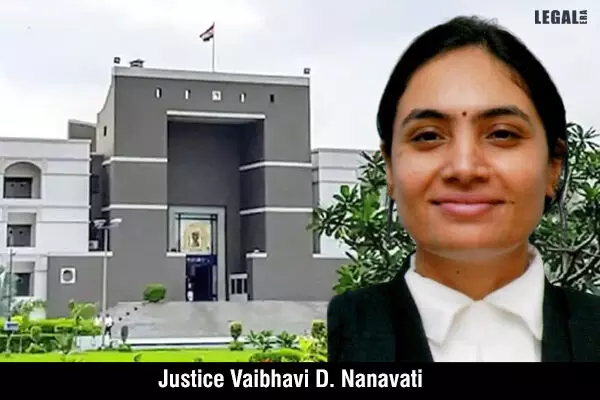- Home
- News
- Articles+
- Aerospace
- Artificial Intelligence
- Agriculture
- Alternate Dispute Resolution
- Arbitration & Mediation
- Banking and Finance
- Bankruptcy
- Book Review
- Bribery & Corruption
- Commercial Litigation
- Competition Law
- Conference Reports
- Consumer Products
- Contract
- Corporate Governance
- Corporate Law
- Covid-19
- Cryptocurrency
- Cybersecurity
- Data Protection
- Defence
- Digital Economy
- E-commerce
- Employment Law
- Energy and Natural Resources
- Entertainment and Sports Law
- Environmental Law
- Environmental, Social, and Governance
- Foreign Direct Investment
- Food and Beverage
- Gaming
- Health Care
- IBC Diaries
- In Focus
- Inclusion & Diversity
- Insurance Law
- Intellectual Property
- International Law
- IP & Tech Era
- Know the Law
- Labour Laws
- Law & Policy and Regulation
- Litigation
- Litigation Funding
- Manufacturing
- Mergers & Acquisitions
- NFTs
- Privacy
- Private Equity
- Project Finance
- Real Estate
- Risk and Compliance
- Student Corner
- Take On Board
- Tax
- Technology Media and Telecom
- Tributes
- Viewpoint
- Zoom In
- Law Firms
- In-House
- Rankings
- E-Magazine
- Legal Era TV
- Events
- Middle East
- Africa
- News
- Articles
- Aerospace
- Artificial Intelligence
- Agriculture
- Alternate Dispute Resolution
- Arbitration & Mediation
- Banking and Finance
- Bankruptcy
- Book Review
- Bribery & Corruption
- Commercial Litigation
- Competition Law
- Conference Reports
- Consumer Products
- Contract
- Corporate Governance
- Corporate Law
- Covid-19
- Cryptocurrency
- Cybersecurity
- Data Protection
- Defence
- Digital Economy
- E-commerce
- Employment Law
- Energy and Natural Resources
- Entertainment and Sports Law
- Environmental Law
- Environmental, Social, and Governance
- Foreign Direct Investment
- Food and Beverage
- Gaming
- Health Care
- IBC Diaries
- In Focus
- Inclusion & Diversity
- Insurance Law
- Intellectual Property
- International Law
- IP & Tech Era
- Know the Law
- Labour Laws
- Law & Policy and Regulation
- Litigation
- Litigation Funding
- Manufacturing
- Mergers & Acquisitions
- NFTs
- Privacy
- Private Equity
- Project Finance
- Real Estate
- Risk and Compliance
- Student Corner
- Take On Board
- Tax
- Technology Media and Telecom
- Tributes
- Viewpoint
- Zoom In
- Law Firms
- In-House
- Rankings
- E-Magazine
- Legal Era TV
- Events
- Middle East
- Africa
Gujarat High Court stays on IBBI Disciplinary Committee Order: Requires Signature of Two Members

Gujarat High Court stays on IBBI Disciplinary Committee Order: Requires Signature of Two Members
The Gujarat Court has stayed the Order passed by the Insolvency and Bankruptcy Board of India (IBBI) whereby the license of an Insolvency professional was suspended owing to alleged procedural irregularities.
The single judge Justice Vaibhavi D. Nanavati stayed the Order of the Board after noting that the coram which passed the impugned order comprised of only a single member.
In the present case, the petitioner who is a CA and an Insolvency professional had approached the High Court challenging the Order passed by the Insolvency and Bankruptcy Board of India alleging breach of various Sections of the Insolvency and Bankruptcy Code, 2016 (IBC) and regulations by the petitioner thereby suspending petitioner's license to practice.
It was the grievance of the petitioner that the coram of the disciplinary committee of the board in the present case was ‘coram non judice.’ It was further submitted that the single whole-time member of the board constituting the disciplinary committee was ‘coram non judice’ in the present case since the coram of the disciplinary committee must be constituted having at least two members.
Senior Advocate Percy C. Kavina appearing for the petitioner argued that the impugned order was signed by one member only which is against the provisions of Section 220(1) of the Insolvency and Bankruptcy Code, 2016.
As per Section 220(1) of the IBC 2016 states that, the Board shall constitute a disciplinary committee to consider the reports of the investigating Authority submitted under sub-section (6) of Section 218: Provided that the members of the disciplinary committee shall consist of whole-time members of the Board only.
The Counsel for the petitioner contended that the said provision clearly stipulates the Disciplinary Committee shall consist of “whole time members” and that it could be construed as comprising of at least “two whole-time members” whereas in the facts of the present case the coram comprised of a single member.
In this regard, the Court directed that, “Considering the aforesaid submissions advanced by Mr. Kavina, the learned Senior Counsel and considering the order passed in the Special Civil Application No.13767 of 2022 dated 20.7.2022, the order impugned dated 23.3.2023 vide No. IBBI/DC/156/2023 (Annexure-A) is stayed till next returnable date.”



